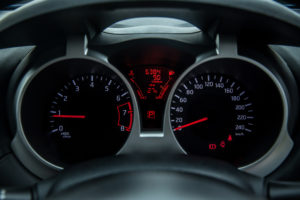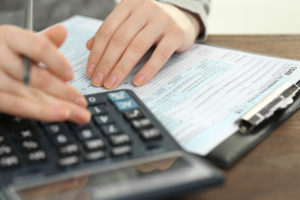“Do I pay VAT on excess mileage fees from my lease vehicle?” this is one of our frequently asked questions. If you do end up going over the mileage agreement on your leased vehicle then the short answer is yes, you do pay VAT on excess mileage on a lease car.
Why do we have to pay VAT?
Why does a lease vehicle have a mileage allowance?
 Lease cars have a mileage allowance to cover depreciation of the vehicle during the lease. Vehicles lose value the more mileage they do and to cover the estimated loss on the vehicle the lease company base their fees on the expected depreciation. The amount you pay on your lease will vary depending on the amount of mileage you are expecting to do. Your estimation at the start of your lease should be as accurate as possible. Factoring in planned trips and long distances if you can. Of course, sometimes circumstances change during the course of your lease which results in the need to do more miles. Perhaps you decide to move home and the property is further away from your place of work leading to an increase in commuter mileage daily. Don’t panic, there are options available to you which we’ll go through in this article.
Lease cars have a mileage allowance to cover depreciation of the vehicle during the lease. Vehicles lose value the more mileage they do and to cover the estimated loss on the vehicle the lease company base their fees on the expected depreciation. The amount you pay on your lease will vary depending on the amount of mileage you are expecting to do. Your estimation at the start of your lease should be as accurate as possible. Factoring in planned trips and long distances if you can. Of course, sometimes circumstances change during the course of your lease which results in the need to do more miles. Perhaps you decide to move home and the property is further away from your place of work leading to an increase in commuter mileage daily. Don’t panic, there are options available to you which we’ll go through in this article.
How is vehicle leasing is calculated?
Discover the VAT on excess mileage charges on a variety of vehicle types
Do I still pay VAT on excess mileage if I plan to purchase the vehicle?
If you plan to purchase the vehicle at the end of the contract then you are still liable to pay VAT on excess mileage fees. You’ll be asked to declare your excess mileage when you contact the lease company at the end of your contact. You’ll need to tell them that you’d like to purchase the vehicle and then they will apply the excess mileage charge and you’ll need to pay this plus pay VAT on the excess mileage accordingly.
Can the VAT on excess mileage be claimed back?
 VAT on excess mileage isn’t such a problem if you lease your vehicle for business purposes. Unlike the monthly rental fees, of which 50% of the VAT can be claimed back against taxable income. 100% of the VAT on excess mileage can be claimed back as a “service charge”. You can also leverage 100% of the lease excess mileage fee excluding VAT against your end of year tax return.
VAT on excess mileage isn’t such a problem if you lease your vehicle for business purposes. Unlike the monthly rental fees, of which 50% of the VAT can be claimed back against taxable income. 100% of the VAT on excess mileage can be claimed back as a “service charge”. You can also leverage 100% of the lease excess mileage fee excluding VAT against your end of year tax return.
So, if you’re a business customer it’s really not a big problem at all.
As a personal hire customer, paying VAT on excess mileage charges on your lease car can feel like a kick in the teeth. It’s worth taking note of these suggestions to help you manage your mileage and what to do if you find yourself going over your mileage allowance.
How do I calculate my average mileage per month?
A manual calculation for working out where you are towards your mileage per month is to take the number of miles your vehicle has currently and divide it by the number of full months you’ve been leasing for. This will give you your average number of miles used per month.
Vehicle mileage/number of months of lease used = average monthly mileage
Then, take your overall mileage allowance and divide it by the number of months in your lease term to give you the monthly average number of miles in your allowance.
Mileage allowance / Number of months in lease = Average monthly mileage allowance
If you’re consistently going over your average monthly allowance, then you’ll likely end up being charged excess mileage.
How to prevent going over your mileage allowance
 Prevention is better than cure and so keeping track of your mileage throughout your lease and understanding if you’re doing more miles a month than you expected will help you to be mindful of how you optimise the use of your vehicle in the future.
Prevention is better than cure and so keeping track of your mileage throughout your lease and understanding if you’re doing more miles a month than you expected will help you to be mindful of how you optimise the use of your vehicle in the future.
A handy I Phone app called LeaseCrunch could help you stay on track and monitor your mileage to avoid any nasty surprises at the end of your lease term.
What to do if you go think you’re going over your mileage allowance?
Call your lease provider straight away. Doing this as soon as you think you’re likely to go over your mileage allowance is a good idea. It gives you more options to plan for, and rectify the situation without any nasty surprises at the end of the lease. Your lease company will give you information about the VAT on excess mileage and what the excess mileage fees are.
You may be able to alter your lease to give you a higher allowance. A new monthly fee will be calculated by your lease provider. This will allow you more miles as part of your lease agreement. This can sometimes be cheaper than paying an excess mileage fee at the end of your agreement. However, if you don’t use the mileage you’ve been paying extra for, you are unable to claim a refund on unused miles.
Tips to reduce your mileage
If you find that you’re going over your average monthly mileage you could try some of these suggestions to help you reduce your output and to bring your mileage back in-line with your allowance.
- Essentially, by driving your car less frequently and choosing to carpool, use public transport or work from home where possible is a good solution to cut down on car use and reduce your mileage.
- Being mindful to consolidate trips will help to reduce your mileage. Passing a supermarket on your way back from a meeting? Pop in and do the shop rather than making a separate journey later.
- Always attempt to take the shorter route to your destination. Some Sat-Navs give you the option for shortest or quickest route and these don’t always correlate. By opting for the shortest route, it may be a longer journey in time.
- Rent a car for long distances. If you’re taking the family across the Country for your summer holiday then hiring a car to transport you will save mileage on your lease vehicle.
- Walk to the shops. Popping to the corner shop down the road for some bread and milk? Walk it and save the mileage. You’d be amazed at how much the little trips add up on your mileage log.
- Periodically swap cars with a family member who drives shorter distances than you. Be aware that you’ll have to make sure the other driver is allowed on your lease contract. Insuring someone else on your lease vehicle?
Speak to your lease company
Speak to your lease company ahead of going over your mileage allowance because they will be able to inform you of the total fee you will be charged. This way you can at least be prepared for it and start to put money aside. It’s not such a headache when it doesn’t come as a shock. So, it’s always best to have a chat with them. You can call our team on 01903 538835
The decision to pay more monthly and have a higher mileage allowance on your lease is one option. Or, enjoy a lower monthly lease fee and pay an excess mileage fee at the end of your lease. The choice is entirely yours. But do remember that you will be charged VAT on excess mileage.

